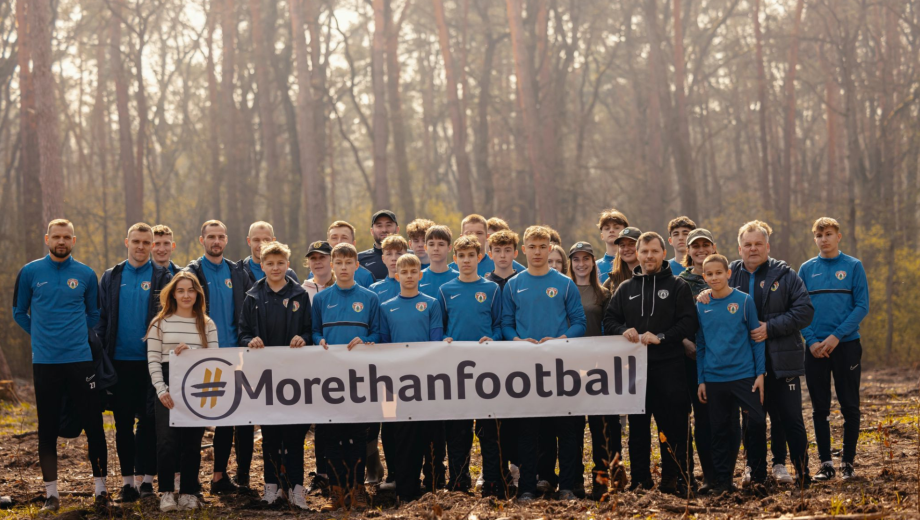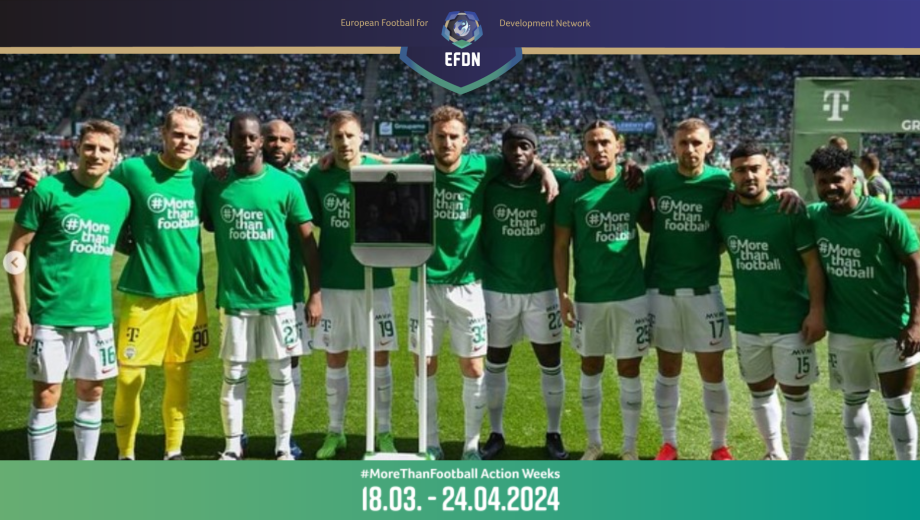UEFA launches its Circular Economy Guidelines
The guidelines are a part of UEFA’s Football Sustainability Strategy 2030 and were unveiled with a panel discussion on the topic.
UEFA has today unveiled its Circular Economy Guidelines in conjunction with Zero Waste Week and the launch of the UEFA Football Sustainability Strategy 2030 – titled ‘Strength Through Unity’ – earlier this year.
The overarching strategy contains 11 policies, one of which focuses on circular economy, and the launch of the guidelines on that topic featured panel discussions between experts in the field from across the European football, political and corporate spectrum.
In the UEFA context, circular economy refers to the optimisation of the consumption and life cycle of products, most notably food, packaging and branded items throughout UEFA operations and events. The organisation’s 2030 ambition is to embed the so-called ‘4R approach’ – built around reducing, reusing, recycling, and recovering – in all operations to minimise the impact of football on the environment and drive resource efficiency and cost savings.
The guidelines include three sections: an introduction to the circular economy concept and the 4R framework; best practice and factsheets in the food and beverage domain by various football stakeholders (created with the support of UEFA’s commercial partner PepsiCo); and an outlook into forthcoming circular economy focus areas – energy and water, apparel and football equipment, and event materials (signage, brand production and furniture, and IT equipment).
The circular economy is an important pillar of UEFA’s Football Sustainability Strategy 2030. Collaborating with PepsiCo and several European clubs to assess aspects of circularity in food and beverage was instrumental in the development of the UEFA guidelines. I look forward to seeing these guidelines translated into tangible actions within UEFA, across UEFA events and collaboratively across European football to help us achieve our aspirational targets around zero plastic waste and food waste.
Michele Uva, UEFA football & social responsibility director
The guidelines will help national associations, leagues, clubs, sponsors, event organisers and other football stakeholders start the journey towards hitting those targets by 2030.
A collaborative approach
Circular economy practices were tested last season with several clubs that participated in the UEFA Champions League, which led to the creation of a database of best practices and the formation of a consultation group among clubs to share knowledge and discuss common challenges, and a feasibility analysis. Additionally, UEFA collaborated with PepsiCo, a partner of UEFA since 2015 across various men’s and women’s football competitions, to implement circular economy practices at the 2022 UEFA Champions League final. These new guidelines were supported by PepsiCo, as well as the European Club Association (ECA).
“ECA’s member clubs, as key stakeholders at the heart the football industry, are poised to play a crucial role in promoting the sustainability of the entire football ecosystem, including the circular economy. Hundreds of clubs across Europe are willing and able to become ‘sustainability champions’ so that club football can act as a role model for the entire football ecosystem, including fans and society at large.
“ECA is supporting our clubs and key partners such as UEFA in implementing more sustainable solutions to improve the social and environmental impact of football, and it is with this goal in mind that we have set up a new ECA sustainability working group, composed of clubs from across all of Europe, to oversee and lead ECA’s sustainability strategy.”
Charlie Marshall, the CEO of European Club Associatio
The panel discussions focused on circular economy from a strategic angle, highlighting the opportunities for collaborative solutions in the European football landscape as well as the challenges and opportunities around implementing the guidelines across football stakeholders.
“We welcome the launch of the UEFA circular economy guidelines. We encourage clubs, national associations, players and supporters to reduce their environmental impact by taking concrete actions such as reducing food and plastic waste, separating waste, using reusable products or buying green with the EU Ecolabel. We very much look forward to the UEFA’s forthcoming measures to reduce energy and water use. Together, we can unite our efforts and drive the transition to a sustainable and circular economy.”
Emmanuelle Maire, head of unit for circular economy, directorate general for environment, European Commission
If you want to read a more detailed version of the guidelines, click below
DFB – Football United Against Racism
DFB Foundations Programmes




